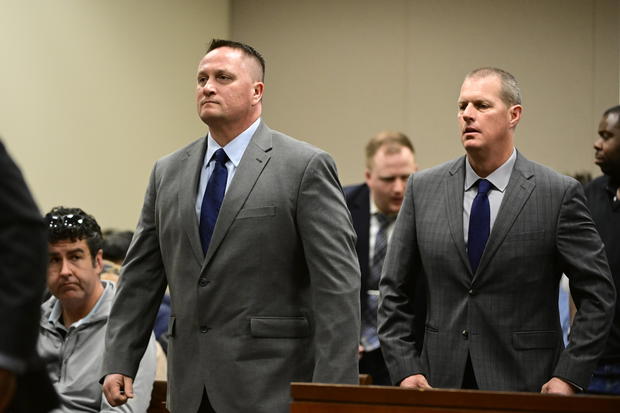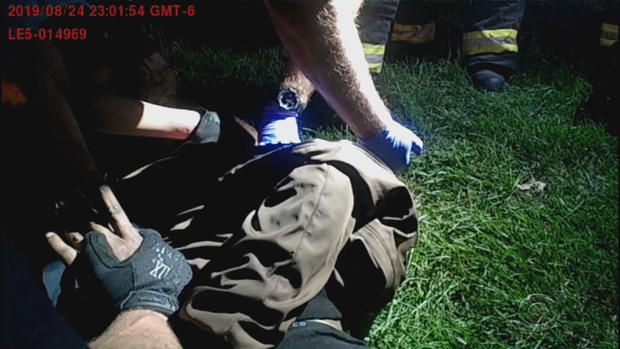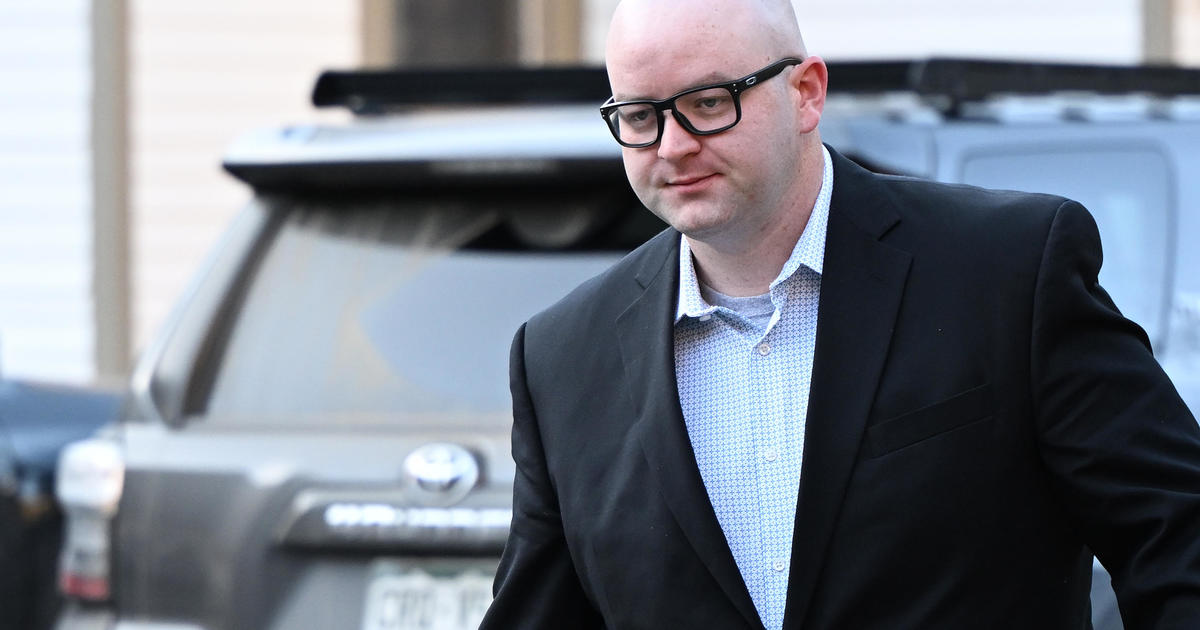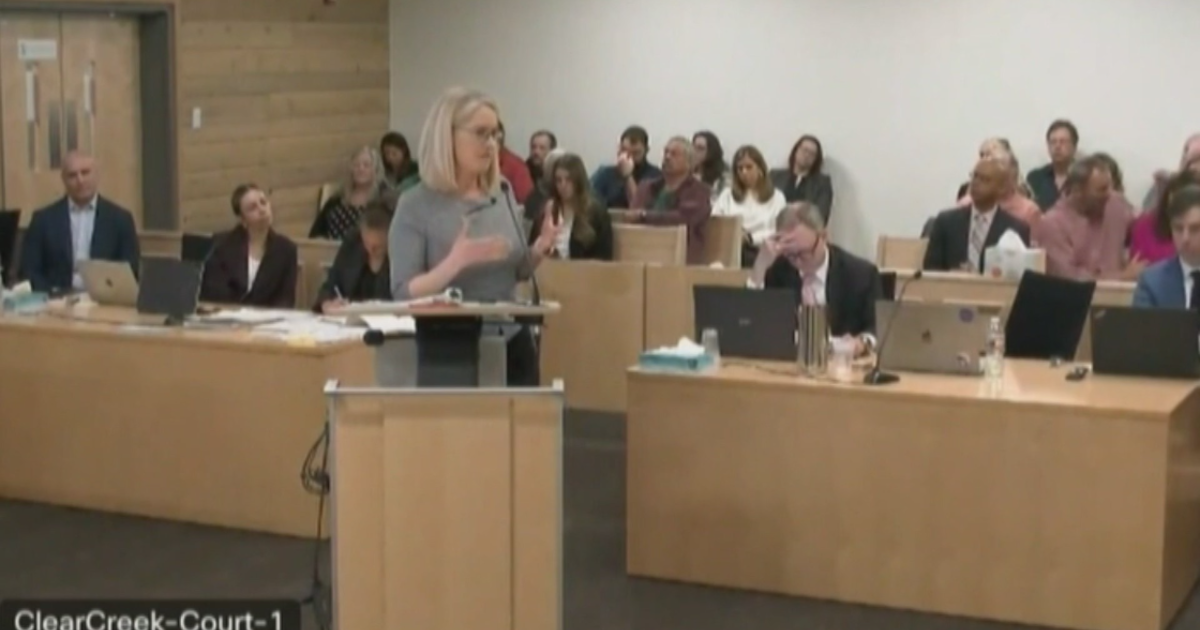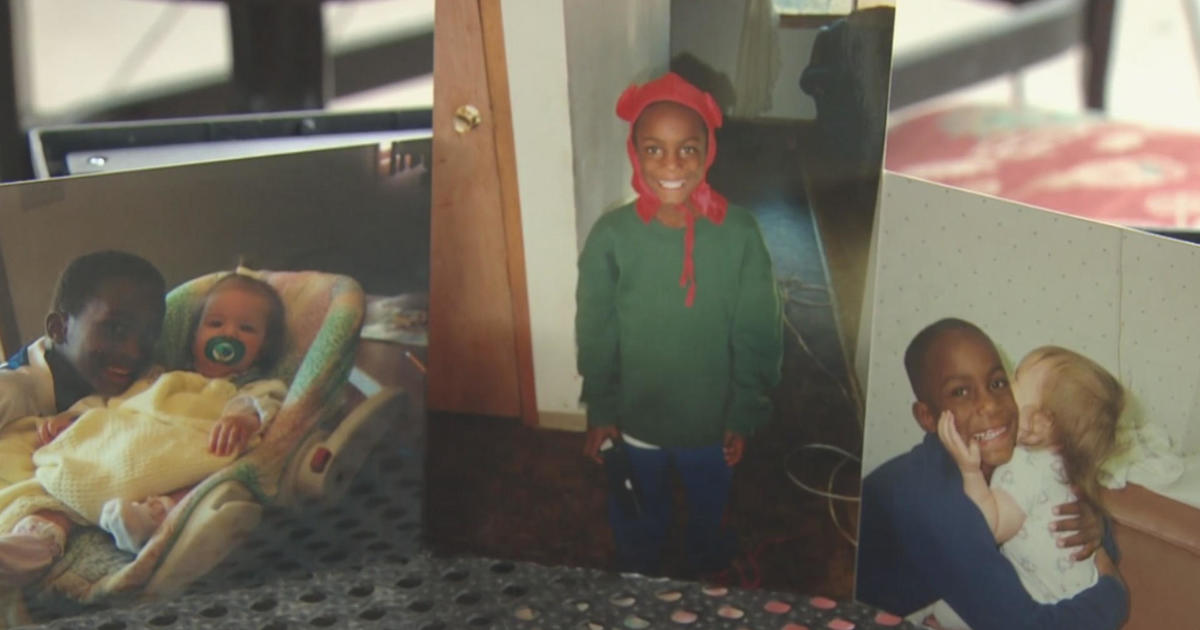Colorado jurors watch recorded testimony from Aurora paramedics accused in death of Elijah McClain
Jurors watched recorded testimony on Wednesday from the two paramedics accused in the death of Elijah McClain. Aurora Fire medic Jeremy Cooper and Lieutenant Peter Cichuniec injected the 23-year-old with ketamine during an encounter with Aurora police in 2019.
McClain went into cardiac arrest on the way to the hospital and died three days later. Both men are charged with reckless manslaughter and criminally negligent homicide, along with other assault charges.
Prosecutors argue the paramedics did not follow proper protocols before giving McClain ketamine. Wednesday morning, the prosecution played videos for the jury showing the separate interviews an Aurora police detective conducted with Cooper and Cichuniec in September 2019, about two weeks after the incident with McClain.
Cichuniec told the detective it was his decision to use ketamine. It's a sedative he said he'd been trained to use on a patient with excited delirium, and said McClain was showing signs and symptoms.
"Just his hyper-aggressive strength," Cichuniec said of McClain that August night. "If you looked in his eyes, no one was home. Just staring straight ahead."
He also explained why so much of the sedative was administered.
"Our protocol is weight specific, but we're taught three doses – 300, 400 or 500 milligrams – based on their size – small, medium or large," Cichuniec said.
"Okay, and you described this person, because of their behavior and size, it was?" the detective asked.
"He was over the 400 (milligrams), and with a 5cc syringe, we cannot measure," Cichuniec replied. "There are no increments on there to measure exactly, so I went up to the 500 (milligrams) because of his agitated state and his signs and symptoms of excited delirium."
Cooper's recorded testimony was played second in the courtroom, and his interview had many of the same questions around his training and use of ketamine. He told the detective he was in charge of medical decisions on scene that night, and requested the ambulance bring ketamine as Aurora Fire Rescue does not have the sedative in their med bags. Cooper told the detective ketamine dose protocol is 5 milligrams per one kilogram of a patient, and that's what he used to determine how much to give McClain.
"I put him at 200 pounds and a little bit shorter than 6 foot," Cooper said of McClain.
"And what would be a dose [of ketamine] for that?" asked the detective.
"That would be 500 milligrams," replied Cooper, "because I'd put him at about 100 kilograms."
It was later confirmed that McClain weighed closer to 140 pounds, so he was given a greater dose. Previous testimony from the forensic pathologist who conducted McClain's autopsy said the level of ketamine in his system was considered a "therapeutic dose." The pathologist did conclude McClain's cause of death to be complications of ketamine following forcible restraint.
The judge released the jury for the day around the lunch hour Wednesday, with the trial scheduled to begin again Friday morning. This is the third and final trial in the death of Elijah McClain and is expected to last several weeks.
